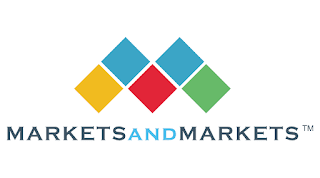AI's Transformative Role in Healthcare: Market Trends and Insights
The AI in Healthcare Market is projected to grow from USD 14.6 Billion in 2023 to USD 102.7 Billion by 2028; it is expected to grow at a CAGR of 47.6% during the forecast period. The generation of large and complex healthcare datasets, an increasing number of partnership and collaboration strategies are factors expected to boost the growth of the AI in Healthcare market in the next five years. However, medical practitioners’ reluctance to adopt AI-based technologies and chief concern regarding data privacy are projected to be the key challenges and restraining factors for the industry players.
Key players operating in the market include Intel Corporation (US), Koninklijke
Intel Corporation designs and manufactures key products and technologies that power the cloud and the smart, connected world. Intel’s technology innovations are enabling the healthcare sector with data-driven insights and artificial intelligence by introducing various tools and solutions to simplify AI deployment in healthcare. The company offers its AI related healthcare solutions for medical imaging, robotics in Healthcare, AI in telemedicine, predictive analytics, precision medicine and genomics, and digital pathology, among others. The company key strategy is to invest in launching new processors and memory devices to cater to the needs of its healthcare clients, such as hospitals, clinics, and biotechnology and pharmaceutical companies. The company is continuously engaged in technology innovation with AI, robotics, and 5G to make healthcare and life science more connected and personalized. Regular updates of its software and hardware products that are already in the market help increase the performance of the AI infrastructure in various advanced medical applications.
Ask for PDF Brochure — https://www.marketsandmarkets.com/pdfdownloadNew.asp?id=54679303
Microsoft offers its AI in healthcare solutions from the Intelligent Cloud segment. Microsoft Azure offers hybrid consistency, AI capabilities, and developer productivity, and improves customer security and compliance. For the health & life sciences industry, the company provides intelligent tools and solutions that empower clinical and operational efficiency and save costs. Azure Synapse Analytics, Azure Health GitHub Repo, Microsoft Healthcare bot, Azure API for FHIR, Azure AI and ML, and Azure IoT for Healthcare are scalable platforms that bring conversational AI to healthcare. Yammer (US), Mojang AB (Sweden), StorSimple (US), and Xamarin (US) are among the subsidiaries of Microsoft. The company is continuously involved in bringing AI capabilities for the platforms in large-scale models of the customers. For instance, the company has exclusively licensed GPT-3, which helps it leverage its technical innovations for AI solutions and create new solutions for the advancement of natural language generation.
Related Reports:
- Automated Border Control Market https://www.marketsandmarkets.com/Market-Reports/automated-border-control-market-24899883.html
- Artificial Intelligence Chipsets Market https://www.marketsandmarkets.com/Market-Reports/artificial-intelligence-chipset-market-237558655.html
- Infrared Detector Market https://www.marketsandmarkets.com/Market-Reports/ir-detector-market-161116561.html
Contact:
Mr. Aashish Mehra
MarketsandMarkets™ INC.
630 Dundee Road
Suite 430
Northbrook, IL 60062
USA : 1–888–600–6441
sales@marketsandmarkets.com


Comments
Post a Comment